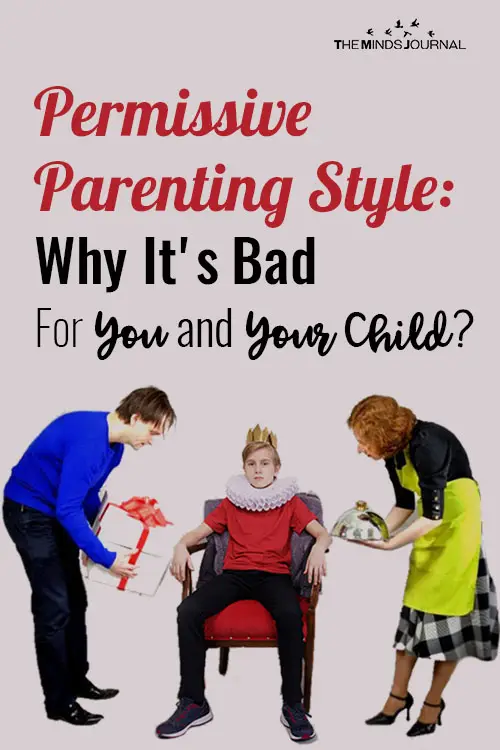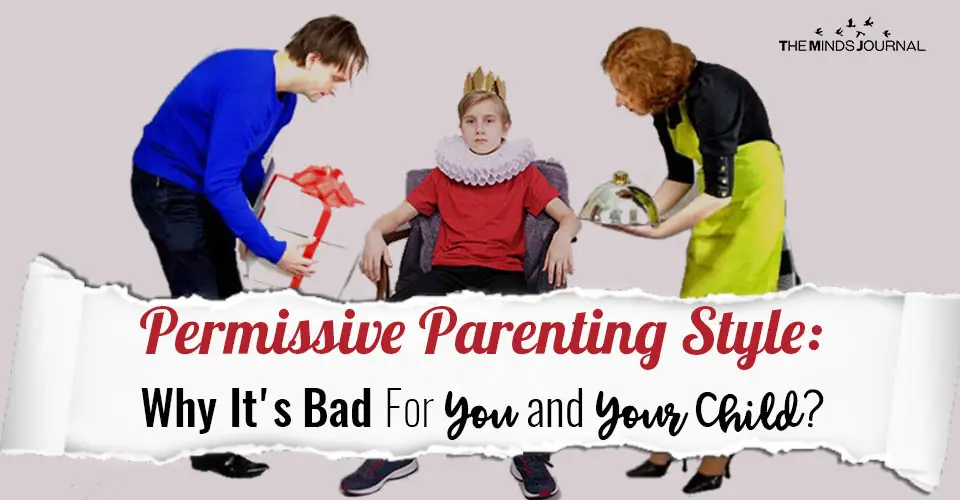Permissive parenting comes from a set of false beliefs that lead to compliance, indulgence or indifference – and allowing your children to control you.
Do you allow your children to control you? Are you giving yourself up and going along with what your children want? Are you indulging your children – giving in to them – even when you know it’s not good for them? Are you withdrawn and indifferent, uninvolved with your children?
Are you coming from a set of false beliefs that lead to permissive parenting?
What are Your False Beliefs That Lead You to be Compliant, Indulgent or Indifferent?
1. If I don’t do what my children want, they won’t love me. I have to give myself up to be loved by my children.
Your children’s love for you is not conditional, because love by definition is not conditional. They might not give you the approval you want. They might be upset with you if they don’t get what they want. But if you do constantly give them what they want, especially if it means giving yourself up or going against what is in their highest good, they will learn to disrespect you. Instead of being loving, they will learn to be bratty and demanding. This is permissive parenting.
Related: Anxiety In Children: 15 Calming Things You Can Say As A Parent
2. Going along with what my children want will ensure that they love me.
When you give in to your children to get their love, you are not loving them. You are attempting to control how they feel about you by giving in. When this is the case, you are more concerned with getting their love than with being loving. It is not loving to children to give to them to get their love. It teaches them to be manipulative to get what they want. This is permissive parenting.
3. I can avoid problems with my children if I give myself up.
It might seem that you are avoiding problems at the moment, but the problems that you create by being permissive will come back to haunt you.
4. Complying is a more loving way to try to control.
Complying as a way to control may seem more loving because on the surface, but any behavior towards another that is designed to get instead of to give is not loving. There is no loving way to control.
5. A good way to resolve conflict is to give in.
Giving in creates a win-lose situation, not conflict resolution. Giving in to your children does not teach them how to achieve win-win conflict resolution. As adults, they will continue to expect others to give in. This is permissive parenting.
6. It feels better to give myself up than to find out that my children don’t care about what is important to me.
This may seem true in the short run, but in the long run, losing yourself is far worse than losing anyone else. If your children don’t care about what is important to you, it is because you have not cared about what is important to you. If you continually put yourself aside, you are giving everyone around you the message that what you want isn’t important.
Related: How to Raise Emotionally Intelligent Children: 3 Crucial Lessons To Teach
7. Giving in to my children lets them know they are important.
Giving in to your children teaches them to control. Children learn that they are important when they are treated with love and respect, and when you treat yourself with love and respect. They will never feel important, no matter how much you give in to them if you do not feel you are important to yourself.
How can children really experience themselves as important if their parents do not see themselves as important? Giving in to them teaches them that you are not important and they absorb this belief and apply it to themselves. Children learn at least as much, if not more, from how you treat yourself as from how you treat them.
Related Video:
8. I don’t want to be authoritarian like my parents were with me, so the only other thing I can do is be permissive.
These are not the only two ways to parent. Continue working with the parenting section to learn another way to parent, and consider reading Do I Have To Give Up Me To Be Loved By My Kids?
9. I can shut down my feelings and still have a loving relationship with my children.
Children need to feel your love. There is no way to have a loving relationship when you are not present with your feelings.
10. I can shut down and shut my children out without their noticing or being affected by it.
Children notice everything and are affected by everything. Children are especially sensitive to your energy. When you shut them out, they are deeply affected by the lack of loving energy.
Related: Conscious Parenting: The Art Of Raising Happy Children
What are the negative consequences to your child of being a permissive parent?
While giving in to your child may make you feel safe at the moment, there are many short and long term negative consequences that result from permissive parenting.
- My child is demanding and disrespectful.
- My child has no regard for other’s wants and needs.
- My child sometimes acts like a selfish, self-centered brat.
- My child expects others to take responsibility for him/her.
- No matter how much I give my child, he/she is never happy. It never seems to be enough.
- Even though I am constantly giving to my child, my child is often angry with me.
- My child has no sense of self-discipline.
- My child lacks self-direction.
- My child is overly needy.
- My child is angry
- My child is depressed.
- My child expresses that he/she feels unloved.
- Even though I think I give my child everything, he/she seems to lack self-esteem.
- My child does not care about his/her health and safety. My child:
- Smokes
- Drinks alcohol
- Smokes pot
- Uses drugs
- Eats junk
- Rides a motorcycle without a helmet
- Drinks or uses drugs and drives
- Drives recklessly
- Has unprotected sex
- Walks in dangerous areas
Related: Top 10 Worst Parenting Words You Should Never Use For Your Child
What are the negative consequences to you of being a permissive parent?
As with all forms of protection, what seems to work in the short run does not work at all in the long run.
Parenting is supposed to be a fun and fulfilling experience, which is will be when you learn to parent as a loving adult and learn to be loving with both yourself and your children.
- I feel trapped and used.
- I feel resentful.
- My child is often angry at me.
- My child often shuts me out.
- Parenting is not fun. It feels like a burden.
- I feel resentful toward my child.
- I feel tense, anxious, angry or frustrated.
- I feel like a failure as a parent.
- My child and I do not have fun together.
There truly is a better way to parent!
Written by Dr. Margaret Paul
Originally appeared in Innerbonding.com









Leave a Reply
You must be logged in to post a comment.